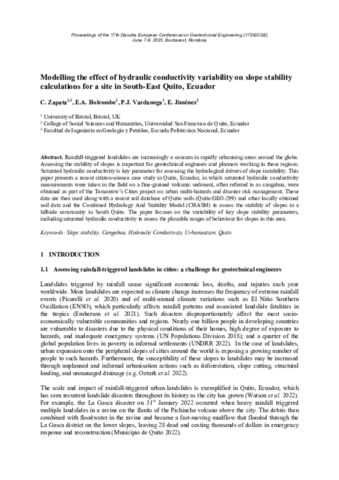Rainfall-triggered landslides are increasingly a concern in rapidly urbanising areas around the globe. Assessing the stability of slopes is important for geotechnical engineers and planners working in these regions. Saturated hydraulic conductivity is key parameter for assessing the hydrological drivers of slope instability. This paper presents a recent citizen-science case study in Quito, Ecuador, in which saturated hydraulic conductivity measurements were taken in the field on a fine-grained volcanic sediment, often referred to as cangahua, were obtained as part of the Tomorrow’s Cities project on urban multi-hazards and disaster risk management. These data are then used along with a recent soil database of Quito soils (Quito/GEO-299) and other locally obtained soil data and the Combined Hydrology And Stability Model (CHASM) to assess the stability of slopes in a hillside community in South Quito. The paper focuses on the variability of key slope stability parameters, including saturated hydraulic conductivity to assess the plausible ranges of behaviour for slopes in this area.
